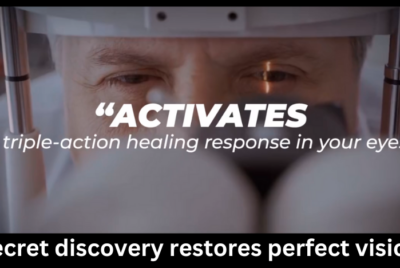Can You Drive After Cataract Surgery
Can you drive after cataract surgery? Learn if driving after cataract surgery is safe, and get tips for a smooth transition. Dive in now! Cataract surgery is a common procedure that restores clear vision by removing the cloudy lens in the eye. As someone passionate about vision health and eager to provide helpful suggestions, I understand the concerns and questions that may arise, especially regarding activities like driving. In this article, I’ll delve into the intricacies of driving post-cataract surgery, providing insights and recommendations based on my own experiences and expert advice.
Understanding Cataract Surgery
Cataract surgery involves replacing the cloudy lens of the eye with an artificial lens to improve vision. It’s typically performed as an outpatient procedure and is known for its effectiveness in restoring clear sight. During the surgery, the cloudy lens is broken apart and removed, and an intraocular lens (IOL) is inserted to replace it. This procedure can be done using traditional surgical techniques or advanced laser technology, depending on the patient’s specific needs and the surgeon’s preferences.
What to Expect After Cataract Surgery
Recovery Process After Cataract Surgery
The recovery period after cataract surgery is crucial for successful outcomes. While the surgery itself is relatively quick, the eyes need time to heal fully. It’s essential to follow the post-operative instructions provided by your ophthalmologist to ensure a smooth recovery. Immediately after surgery, you may experience some discomfort, mild itching, or a gritty sensation in the eyes. Your doctor may prescribe eye drops to prevent infection and reduce inflammation, which should be used as directed.
Driving After Cataract Surgery
What You Need to Know
Driving after cataract surgery is a topic that warrants careful consideration. Although the desire to regain independence and resume daily activities is understandable, it’s vital to prioritize safety above all else. The decision to drive after cataract surgery should not be taken lightly, as your vision plays a crucial role in your ability to operate a vehicle safely.
Safety Concerns
Driving too soon after cataract surgery can pose significant risks. Blurred vision, sensitivity to light, and difficulty judging distances are common post-operative symptoms that can impair driving ability. Additionally, some patients may experience glare or halos around lights, especially at night, which can further compromise their ability to drive safely. It’s essential to be aware of these potential side effects and take them into consideration when determining whether it’s safe to drive.
Determining Your Readiness to Drive
Before getting behind the wheel post-surgery, it’s crucial to assess your visual acuity and depth perception. Your ophthalmologist can provide guidance on when it’s safe to resume driving based on your individual recovery progress. In general, most patients are advised to wait at least 24 hours after cataract surgery before driving. However, this timeline may vary depending on the specific circumstances of each patient and their overall health.
Consulting Your Ophthalmologist
Your ophthalmologist plays a crucial role in determining when it’s safe for you to drive after cataract surgery. Be sure to attend all follow-up appointments and discuss any concerns or questions you may have regarding driving restrictions. Your doctor will evaluate your progress and provide personalized recommendations based on your recovery timeline and visual acuity. It’s essential to be honest with your doctor about any difficulties you may be experiencing with your vision, as this information will help them make informed decisions about your readiness to drive.
Alternative Transportation Options
While you may need to refrain from driving initially, there are alternative transportation options available. Relying on family and friends for rides or utilizing public transportation can help bridge the gap until you’re cleared to drive again. Many communities also offer transportation services specifically for seniors or individuals with mobility limitations, which can provide a safe and convenient way to get around during your recovery period.
Gradual Return to Driving
When you’re ready to resume driving, it’s essential to ease back into it gradually. Start with short, familiar routes during daylight hours and gradually extend your driving time as you feel more comfortable behind the wheel. Feeling a bit nervous or apprehensive about driving after cataract surgery is normal, so take your time and listen to your body. If you experience any discomfort or difficulty while driving, don’t hesitate to pull over and take a break until you feel more confident.
Tips for Safe Driving Post-Surgery
To ensure a safe driving experience post-surgery, be sure to wear any prescribed eyewear, such as glasses or sunglasses, and avoid distractions while driving. Stay vigilant and attentive to changes in your vision or discomfort while on the road. Be mindful of any visual limitations you may have, such as decreased night vision or sensitivity to glare, and take steps to mitigate these challenges. Remember that safety should always be your top priority when operating a vehicle, especially during the delicate recovery period after cataract surgery.
Legal Considerations
Before resuming driving after cataract surgery, familiarize yourself with any legal requirements or restrictions regarding driving post-medical procedures. Understanding your rights and responsibilities can help prevent any legal complications in the event of an accident. Some states may have specific guidelines or waiting periods for individuals who have undergone cataract surgery, so be sure to check with your local Department of Motor Vehicles for more information.
Reassurance for Patients
It’s normal to experience temporary limitations after cataract surgery, including restrictions on driving. Be patient with yourself during the recovery process, and trust that your vision will continue to improve over time. Remember that cataract surgery is a highly successful procedure with a low risk of complications, and the vast majority of patients experience significant improvements in their vision afterward. Keep a positive attitude and focus on taking care of yourself during this critical period of healing.
Community Support
Seeking support from others who have undergone cataract surgery can provide valuable insights and reassurance. Consider joining support groups or online forums to connect with individuals who can relate to your experiences and offer guidance. Sharing your journey with others can help alleviate any fears or anxieties you may have about driving after cataract surgery and provide valuable tips for navigating this challenging time.
Can You Drive After Cataract Surgery – Conclusion
Driving after cataract surgery requires careful consideration and adherence to post-operative guidelines. By prioritizing safety, consulting your ophthalmologist, and gradually easing back into driving, you can enjoy a smooth and successful recovery. Remember to be patient with yourself and listen to your body as you navigate this important milestone in your journey toward clearer vision and improved quality of life.
Please note that this article should not replace professional medical advice. Consult a healthcare professional for an accurate diagnosis and tailored treatment plan.
FAQs Related to Can You Drive After Cataract Surgery
Can I drive myself home after cataract surgery?
It’s recommended that you arrange for transportation home after surgery, as your vision may be temporarily impaired.
How long should I wait before driving after cataract surgery?
Your ophthalmologist will advise you on when it’s safe to resume driving, typically after your vision has stabilized and any post-operative symptoms have resolved.
Are there any specific symptoms that indicate I shouldn’t drive?
Blurred vision, sensitivity to light, and difficulty judging distances are common symptoms that may indicate it’s not safe to drive.
Can I wear sunglasses while driving after cataract surgery?
Yes, wearing sunglasses can help reduce glare and discomfort, especially when driving during sunny conditions.
What should I do if I experience discomfort while driving after surgery?
If you experience discomfort or changes in your vision while driving, pull over to a safe location and wait until you feel comfortable continuing or seek assistance if necessary.




